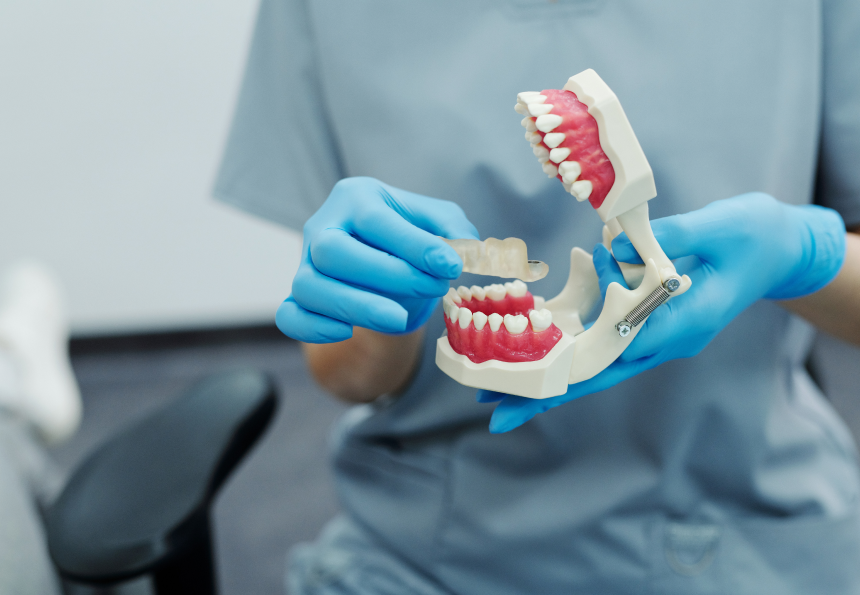Experience Comprehensive Dental Care with a Relied On Eugene Dentist
Experience Comprehensive Dental Care with a Relied On Eugene Dentist
Blog Article
An Overview to Usual Dental Conditions That Need a Dental practitioner's Care
Toothaches, for example, can be symptomatic of extreme concerns such as tooth cavities, split teeth, or abscesses, each needing certain treatments like fillings or root canals. Impacted knowledge teeth and jaw disorders can introduce substantial pain and issues.
Toothaches
Toothaches are a typical dental condition that can vary from light pain to extreme discomfort, often showing an underlying issue that needs expert interest. This pain can come from a variety of resources, consisting of dental tooth cavities, cracked or fractured teeth, and oral abscesses. Each of these conditions presents substantial threats if left without treatment, possibly resulting in much more extreme difficulties.
Tooth decays, also called cavities, are triggered by the buildup of plaque that erodes tooth enamel, leading to holes or pits in the impacted teeth. Fractured or fractured teeth, on the other hand, may result from injury, grinding, or biting into hard things. These structural damages can reveal the sensitive internal layers of the tooth, causing acute pain and increasing the threat of infection. Abscesses are unpleasant infections at the root of a tooth or between a tooth and the gum, typically resulting from severe degeneration or neglected tooth cavities.
Efficient therapy of toothaches entails attending to the origin reason. This might consist of dental fillings for tooth cavities, crowns for cracked teeth, or root canals and anti-biotics for abscesses. Very early treatment by an oral expert can prevent further deterioration and relieve pain, ensuring optimal dental health and wellness.
Periodontal Disease

The main reason of periodontal disease is microbial plaque, a sticky, colorless film that regularly bases on teeth. Poor dental health, smoking cigarettes, genetic predisposition, and specific medical problems, such as diabetes mellitus, can exacerbate the risk of developing gum condition. Regular dental examinations are critical for early detection and monitoring of this problem.
Therapy for periodontal disease varies from professional oral cleansing and scaling to advanced procedures like root planing and periodontal surgical procedure, relying on the intensity. Preserving good oral hygiene techniques, consisting of brushing twice daily, flossing, and using a disinfectant mouth wash, can considerably lower the threat of gum tissue condition and advertise healthier gum tissues.
Dental Caries
Tooth cavities, likewise referred to as oral decays, are an usual oral problem identified by the devastation of tooth enamel as a result of acid-producing microorganisms in the mouth. These microorganisms flourish on sugars and starches from food and drinks, producing acids that slowly erode the enamel, resulting in tooth cavity development.
Early-stage cavities may disappoint symptoms, yet as they advance, they can trigger tooth pain, sensitivity to chilly or warm, noticeable openings or pits in the teeth, and discoloration. If left untreated, cavities can pass through deeper layers of the tooth, possibly causing serious discomfort, infection, and also missing teeth.
Stopping tooth cavities entails a combination of great dental health techniques and dietary routines. Regular cleaning with fluoride toothpaste, flossing, and regular dental examinations are crucial. Dentists might also recommend extra preventative procedures, such as fluoride treatments and oral sealers, to safeguard teeth from degeneration.
Therapy for tooth cavities depends upon their intensity. Small dental caries can be addressed with dental fillings, which recover the tooth's framework. If the decay has reached the tooth's pulp, extra advanced situations might call for crowns or even root canal treatment. Timely intervention by a dentist is important to avoid complications and maintain general dental health and wellness.
Impacted Wisdom Teeth
Affected knowledge teeth are a widespread oral problem that occurs when the third molars, commonly described as knowledge teeth, fail to completely arise or line up properly within the mouth. This condition frequently results from insufficient space in the jaw or an uncommon development angle of the teeth. Influenced wisdom teeth can cause a selection of complications, including pain, damage, and infection to surrounding teeth.
When knowledge teeth end up being impacted, they are often partly emerged or continue to be entirely underneath the periodontal line. This partial eruption can produce a pathway for bacteria to go into the periodontals, leading to infections that manifest as swelling, pain, and even fever (dentist eugene or). Additionally, influenced wisdom teeth can exert stress on surrounding teeth, potentially creating crowding or shifting
A thorough oral assessment, normally entailing X-rays, is important for additional reading identifying impacted wisdom teeth. Therapy commonly entails medical removal, executed by a dental specialist. The procedure aims to minimize discomfort and prevent additional difficulties, such as cysts or damage to surrounding bone frameworks. Post-operative care is crucial to make sure correct recovery and lessen the danger of infection. Regular oral examinations are suggested to monitor the condition and keep dental health.
Jaw Conditions
Verdict

Dental dental caries, additionally understood as decays, are caused by the buildup of plaque that wears Source down tooth enamel, leading to holes or pits in the affected teeth. Abscesses are painful infections at the origin of a tooth or in between why not find out more a tooth and the periodontal, usually resulting from severe degeneration or without treatment dental caries.
Impacted wisdom teeth are a widespread oral problem that happens when the 3rd molars, commonly referred to as knowledge teeth, fail to totally emerge or straighten correctly within the mouth. Affected knowledge teeth can lead to a range of problems, including infection, discomfort, and damages to surrounding teeth.
In addition, impacted wisdom teeth can put in pressure on surrounding teeth, possibly triggering crowding or shifting.
Report this page